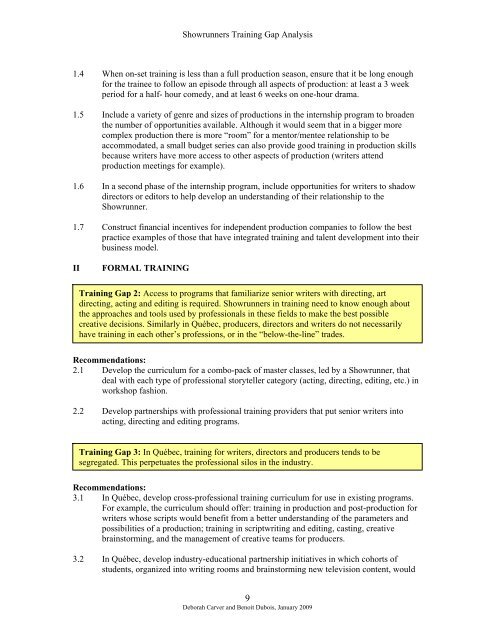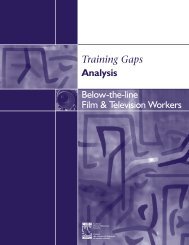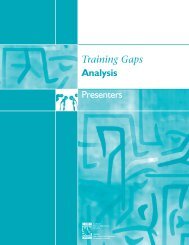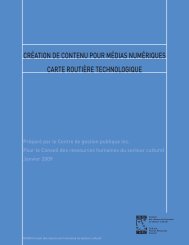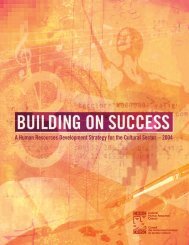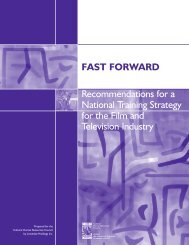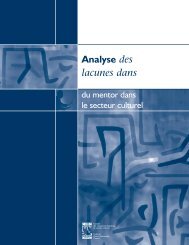Showrunners - Training Gaps Analysis - Cultural Human Resources ...
Showrunners - Training Gaps Analysis - Cultural Human Resources ...
Showrunners - Training Gaps Analysis - Cultural Human Resources ...
You also want an ePaper? Increase the reach of your titles
YUMPU automatically turns print PDFs into web optimized ePapers that Google loves.
<strong>Showrunners</strong> <strong>Training</strong> Gap <strong>Analysis</strong><br />
1.4 When on-set training is less than a full production season, ensure that it be long enough<br />
for the trainee to follow an episode through all aspects of production: at least a 3 week<br />
period for a half- hour comedy, and at least 6 weeks on one-hour drama.<br />
1.5 Include a variety of genre and sizes of productions in the internship program to broaden<br />
the number of opportunities available. Although it would seem that in a bigger more<br />
complex production there is more “room” for a mentor/mentee relationship to be<br />
accommodated, a small budget series can also provide good training in production skills<br />
because writers have more access to other aspects of production (writers attend<br />
production meetings for example).<br />
1.6 In a second phase of the internship program, include opportunities for writers to shadow<br />
directors or editors to help develop an understanding of their relationship to the<br />
Showrunner.<br />
1.7 Construct financial incentives for independent production companies to follow the best<br />
practice examples of those that have integrated training and talent development into their<br />
business model.<br />
II FORMAL TRAINING<br />
<strong>Training</strong> Gap 2: Access to programs that familiarize senior writers with directing, art<br />
directing, acting and editing is required. <strong>Showrunners</strong> in training need to know enough about<br />
the approaches and tools used by professionals in these fields to make the best possible<br />
creative decisions. Similarly in Québec, producers, directors and writers do not necessarily<br />
have training in each other’s professions, or in the “below-the-line” trades.<br />
Recommendations:<br />
2.1 Develop the curriculum for a combo-pack of master classes, led by a Showrunner, that<br />
deal with each type of professional storyteller category (acting, directing, editing, etc.) in<br />
workshop fashion.<br />
2.2 Develop partnerships with professional training providers that put senior writers into<br />
acting, directing and editing programs.<br />
<strong>Training</strong> Gap 3: In Québec, training for writers, directors and producers tends to be<br />
segregated. This perpetuates the professional silos in the industry.<br />
Recommendations:<br />
3.1 In Québec, develop cross-professional training curriculum for use in existing programs.<br />
For example, the curriculum should offer: training in production and post-production for<br />
writers whose scripts would benefit from a better understanding of the parameters and<br />
possibilities of a production; training in scriptwriting and editing, casting, creative<br />
brainstorming, and the management of creative teams for producers.<br />
3.2 In Québec, develop industry-educational partnership initiatives in which cohorts of<br />
students, organized into writing rooms and brainstorming new television content, would<br />
9<br />
Deborah Carver and Benoit Dubois, January 2009


